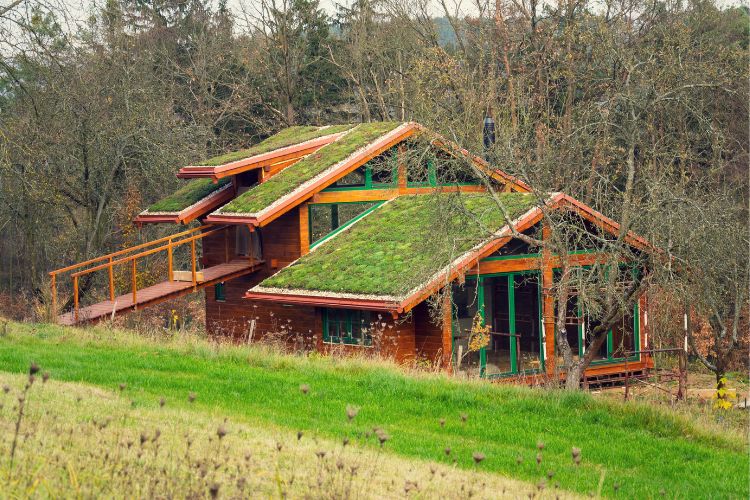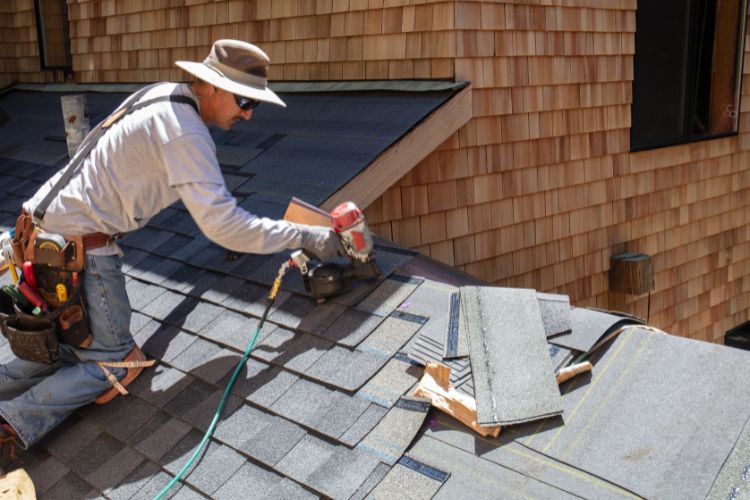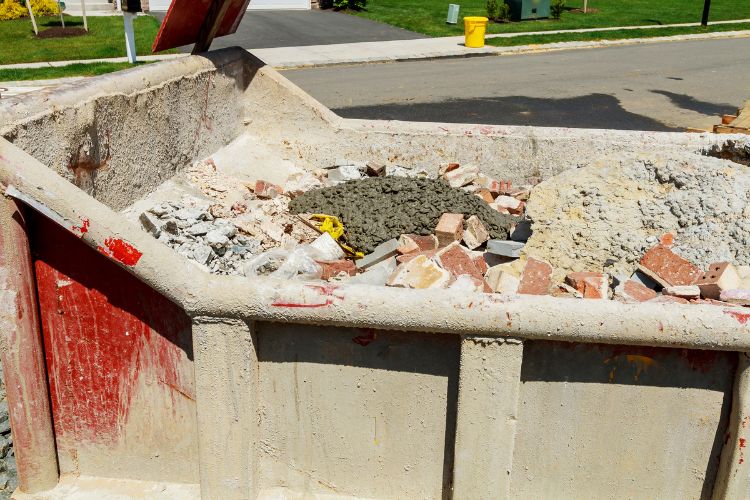While it’s most commonly used to construct roads, asphalt is also sometimes found in other building materials. However, because it’s not the sort of waste type you come across regularly, it’s difficult to know how best to dispose of it.
So, what is the safest way to dispose of asphalt should you need to? Read on to find out all about asphalt.
What is asphalt, and where is it found?
Asphalt is a concrete mixture comprised of aggregates, such as sand and gravel, and bitumen, a sticky liquid that binds everything together. One of the most commonly recycled materials in the world, asphalt is often just referred to as ‘bitumen’ in Australia, although that’s technically incorrect.
Asphalt is used to construct roads, pavements, car parks, walking trails and playgrounds, but it can also be used in roof shingles and floor tiles, in coatings, and for soundproofing and waterproofing. While asphalt roofing is not very common in Australia, it is a prime option for applications like green or living roofs.
When you might need to dispose of asphalt
When it is used to construct roads, driveways and car parks and is properly maintained, asphalt can last for up to 30 years before resurfacing is required, but this will vary depending on the climate and the volume of traffic it receives. However, if it’s beyond repair or its lifespan is up, it may be time to consider removing the badly damaged areas.
Example 1: Replacing a driveway or parking lot
If it’s too badly degraded with a pothole or five and can’t be resurfaced or repaired by sealcoating, asphalt may need to be removed altogether. (Sealcoating is the process of crack filling and sealing asphalt with a liquid product to prevent water from entering and disturbing the integrity of the asphalt.)
However, sometimes asphalt can be recycled using a process called hot in-place recycling, so it’s always worth speaking to an asphalt expert before the asphalt is ripped up and sent to landfill.
Example 2: Commercial space/hardstand
While asphalt is used for roads, a subset called blacktop is more often used in less trafficked areas, such as commercial spaces and parking lots. Blacktop is easier to repair, so its life can be extended more easily.
Example 3: Replacing a roof
Although not particularly common in Australia, asphalt shingles need to be replaced every 20–30 years. While they can be disposed of in landfill because they are not made of any hazardous substances, they are also able to be recycled.
Pros and cons of asphalt
Asphalt is so widely used around the world because it’s cost-effective, has superior waterproofing abilities, is long-lasting and reduces noise pollution.
When hot, asphalt can release gases that cause lung irritation and because it’s heated to such a high temperature, it can also cause burns. However, once it has cured, asphalt is considered non-hazardous.
Because it’s not dangerous and is easily returned to its original state, asphalt is one of the most recycled materials in the world.
While it can be put into the garbage or sent to the dump, a large quantity of asphalt is better recycled and reused. Not only is it better for the environment, but it also makes for a lower-cost material for contractors and residential customers. Recycled asphalt has even been combined with other recycled materials to create new projects.
How to dispose of asphalt in a skip bin
At Best Price Skip Bins, the best method to dispose of a small amount of asphalt is to hire a mixed waste bin, as it can then be disposed of with other materials, such as general construction waste, at the same time. Construction and demolition waste includes plasterboard and gyprock, bricks, pavers, roof tiles, wood, timber, metals, steel, plastics, glass, carpet, clay, soil, stumps and branches from trees and other green waste such as grass clippings.
However, if you have enough asphalt to fill a whole skip bin, it’s best to speak to us directly so we can determine if we can recommend a particular type of bin to recycle the asphalt.
See our ‘waste type’ page for more information on the different types of skip bins available for hire and what types of waste go in each bin.
What can’t you dispose of in a skip bin?
Best Price Skip Bins can’t dispose of certain waste items, so they should never be placed in your skip bin. These include asbestos, insulation, food, wet paint, empty chemical drums and containers or chemicals, liquids, pesticides and herbicides, wet cement, batteries, gas bottles, fire extinguishers and tyres.
Where to hire a skip bin for asphalt and other materials
If you’re not sure if a product contains asphalt or if you know it only contains a small amount, then it’s fine to dispose of it in your mixed waste skip bin. If you’re replacing a large surface, such as a driveway or commercial area, call in a commercial operator to have it recycled.
If you have questions about the right type of skip bin for your job or need help with sizes, simply contact Best Price Skip Bins.



